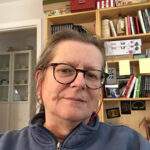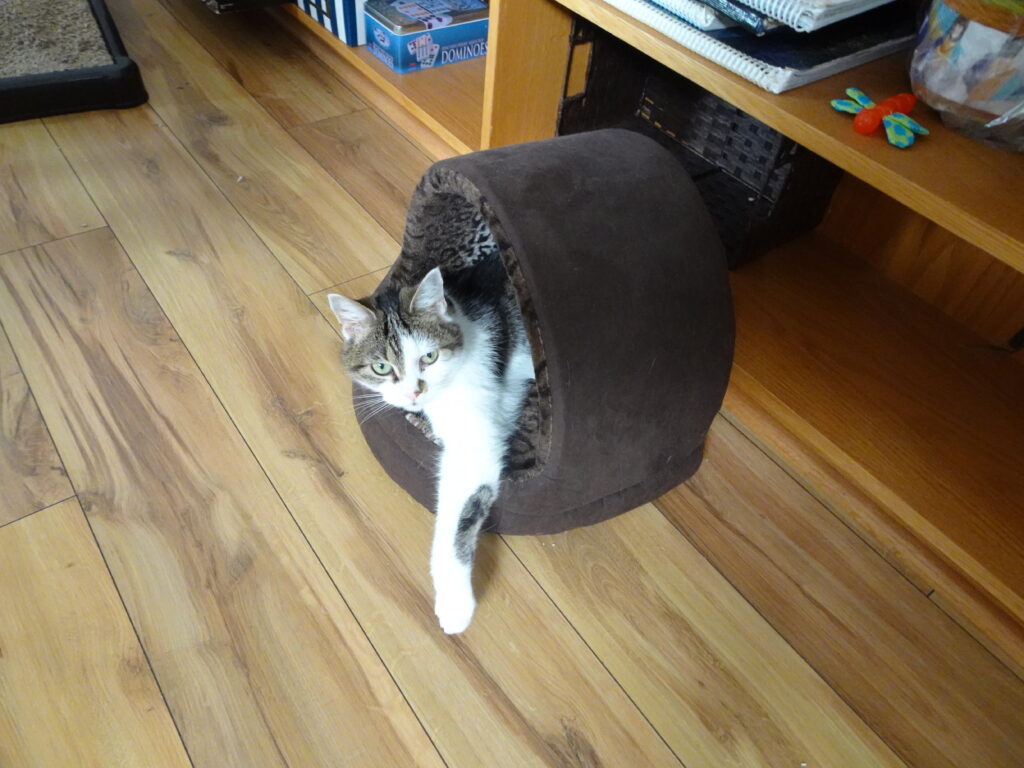
My September guest, Marian L Thorpe, is the author of a fascinating series loosely based on the decline of the Western Roman, but in an ‘undefinable genre somewhere between alternative history and historical fantasy’ to quote Marian. Here she tells us how she goes about her writing, what else she’s involved in, and what’s up next. Welcome, Marian!
I live in Canada, just west of Toronto, but I am a dual Canadian/UK citizen, and prior to the pandemic we spent several months of the year in the UK, in Norfolk. Whether we will return to that at some point is a little up in the air right now, but I hope so. Other than writing, I am the chair of a community newsletter and the co-chair of a local writers’ group. I also coordinate Arboretum Press, a not-for-profit small press that uses a skills-sharing model to assist writers with independent publishing.
I write for two to three hours most days, spend an hour exercising, either biking or walking, and then the rest of the working day is taken up by my other responsibilities. Primarily I’m a novelist, of an undefinable genre somewhere between alternative history and historical fantasy. No magic, no otherworldly races or beasts, but not quite our world either, in terms of history, geography, or social norms. I also write urban fantasy short stories, essays on place and nature and occasionally local history. Once upon a time I wrote poetry, although I’ve let that slip for some years now, except for those included in my books, even though it was my first published work.
Switching genres can be a bit of a challenge. I usually read a little of other authors who work in a specific genre just to remind myself of the styles and conventions, and then I just write. I don’t really market the work other than the novels, although I may release a collection of shorts once there’s enough of them that I think are good enough. The same with the essays: they’re published on Medium, and perhaps some day I’ll do a collection.

Currently I write about a period that roughly parallels the decline of the Western Roman empire to about the 11th C, but I don’t stick to real chronology or history. The period is echoed and reflected, and I may use specific events as inspiration, but I’m not truly an historical fiction writer. But, I research almost as thoroughly as most historical fiction authors. I don’t want anachronisms in terms of weapons or food, and when I deviate from something – say the structure of the Praetorian Guard – I want to know what it is I am changing. Research happens in several ways: a lot of books, a lot of websites, university and other courses, and in-person visits, to Hadrian’s Wall and Rome and the Caledonian forest, to name a few.
The Empire’s Legacy series started with an image of a young fisherwoman bringing her boat into a harbour at sunset. The place was clear in my mind, based on memories of Anglesey. But after that, the characters took over and every book since has been based on the previous ones. They are chronological (except the upcoming one) but after the original trilogy, it was a matter of deciding what event/character in the previous books sparked a new story, or, what historic event was interesting enough to be borrowed as a framework for a book.
The bride parades of Byzantium, where young women were brought from all over the lands under Byzantine influence to be considered as a wife for a prince, inspired Empire’s Heir, which came out in 2020. But beyond that concept, the book looks at the relationship between a father and his daughter in the face of this huge challenge to the daughter: marry the young Emperor or stay with the woman she loves and be no more than the heir to the nominal leadership of her small country, a province of the empire. Like all my books, it asks how we choose between personal happiness and duty to a larger cause, and the role of love of many kinds – for people, for lands, for justice – in creating an equitable world.
As happened when I learned about the bride parades, research keeps me thinking, especially non-fiction. I read eclectically. My favourite novelists include Guy Gavriel Kay, whose work has been a huge influence on mine, in terms of how to create an almost-historic world, Charles de Lint, who is a master of urban fantasy, Karen Heenan’s books, whether the Tudor books or the upcoming depression-era Philadelphia stories, and Alistair Tosh’s enjoyable Roman Britain book(s), the second of which should be out soon. For history I turn to Guy de la Bédoyère’s very readable books, and Annie Whitehead and Mary Beard, and for interpreting and immersion in place and nature, Annie Dillard, Robert Macfarlane, Tim Dee.

I usually can’t get more than a few pages into a biography or other history book without starting to create stories around the information. As for what drew me to it–I blame Rosemary Sutcliffe, and then Mary Stewart, for my abiding interest in Roman and post-Roman Britain.
The seventh book in the series, Empress & Soldier, should be out early in 2023. After that, the last of the series, Empire’s Passing. And after that – well, that will have been 7 long books (and one novella) in 10 years, and maybe I’ll take a break. But there’s a Hanseatic-League-inspired book lurking in the back of my mind, so, maybe not!
About Marian
Taught to read at the age of three, words have been central to Marian’s life for as long as she can remember. After two careers as a research scientist and an educator, she retired from salaried work and returned to writing things that weren’t research papers or reports. Now mostly a novelist, Marian has also published poetry, short stories, and non-fiction work.
Marian’s other two passions in life are birding and landscape history, both of which are reflected in her books. Birding has taken her and her husband to all seven continents, although her best sighting remains the snow leopard in the Altai Mountains of Mongolia. [Ed note: How very wonderful!]
Find all of Marian’s books here.
For future author interviews, sign up to By the Letter if you’re not already a subscriber. Find it here.
Read more author interviews here – and get to meet new authors in my monthly newsletter, sign up here!